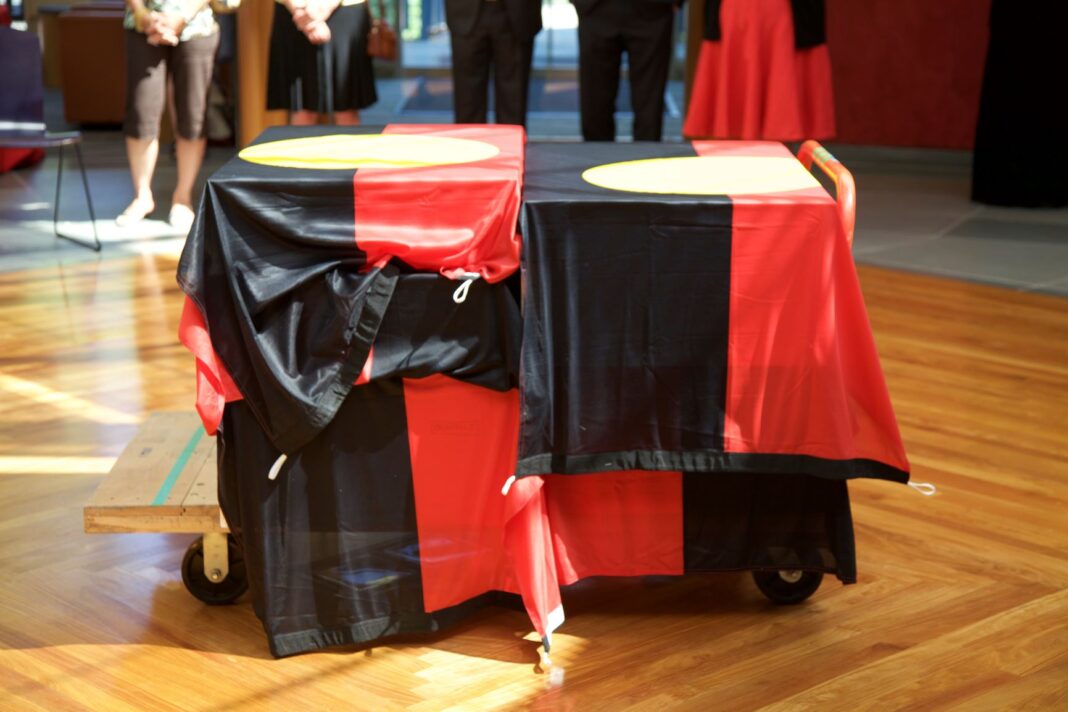A documentary film by researchers from The ANU is set to shine a light on the cultural and emotional damage caused to Aboriginal communities by ‘bone theft’ – the removal of human remains from their resting places for scientific purposes.
Etched in Bone tells the story of Jacob Nayinggul, an Aboriginal elder from Arnhem Land in northern Australia, who knew bones of his ancestors were stolen by scientists in 1948 and held by the Smithsonian Institution in Washington DC for 60 years.
When, after years of argument, the Smithsonian finally agrees to repatriate the bones, Mr Nayinggul creates a new form of ceremony. Wrapped in paperbark, the stolen bones—and with them the ancestors’ spirits—are welcomed home and put to sleep in the land where they were born.
The film was made and directed by historian Dr Martin Thomas and Dr Béatrice Bijon, both from the ANU School of Literature, Languages and Linguistics.
The feature-length documentary was in production for the past eight years, and Dr Thomas said the film explores why human remains are important within Indigenous culture.
“The spirits of the ancestors are attached to the bones, so removing them creates disharmony within the spirit world,” Dr Thomas said. “There is a fundamental conflict between scientific values and Indigenous beliefs.”
Dr Bijon said that even after the Australian Government officially contacted the Smithsonian in the late 1990s to ask for the bones to be returned, it was a long and stressful process.
“The Smithsonian Institution has an absolutely huge physical anthropology collection and curators that are rather attached to it; they feel it has enormous scientific value,” Dr Bijon said.
Etched in Bone will be launched this evening, Thursday 4 October at the NFSA, a date that marks the s70th anniversary of the expedition.
On 5 October, there will be a public symposium at the ANU where the filmmakers, the Arnhem Landers and researchers will discuss the issues involved with repatriation.
Visit slll.cass.anu.edu.au/events/etched-bone-film-martin-thomas-and-beatrice-bijon for screening details.
For more:



